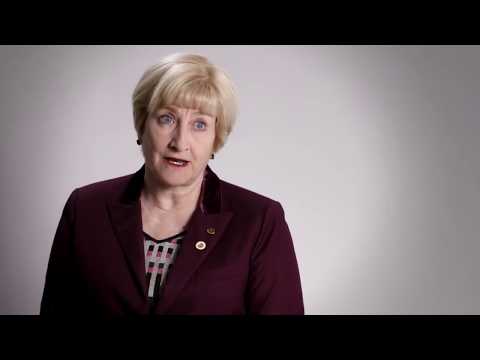Patients and Physicians Speak Out
Prior authorization burdens negatively impact patients and health care professionals around the country every day. Explore their stories and share your own experiences to make your voice heard on the need to #FixPriorAuth.
Featured Stories
Yes, just last year I needed knee surgery. The insurance made me go through 2 weeks of resting it then 3 weeks of physical therapy plus a fluid removal attempt. All this before I could even get an MRI that my ortho doc with 40 yrs experience knew I needed in the first place. After the MRI I had to wait 2 more weeks for approval. From start to finish I was laid up 4 months and even lost my job because I ran out of FMLA. Now I have a wrist injury and I am not going for treatment because I really like my new job and I am afraid to go through it all again.

I went almost two weeks without long-acting insulin and two days without even short-acting insulin waiting for prior authorizations. This landed me in the ER 3 times and sent me into a pancreatitis flare. And wasted about 3 hours of my doctor’s time to get insulin. This was not new either; I have been diabetic since I was a kid, so about 25 years. They also made me switch what kind I use, and that caused my sugar to be out of control for weeks, even after I finally got the insulin, while I determined my correct bolus dose of the new insulin.
Share Your Story
Have you ever gone to the pharmacy to fill a prescription only to be told that your insurance company requires approval before they'll cover your treatment?
Have you ever waited days, weeks or months for a test or medical procedure to be scheduled because you needed authorization from an insurer?
Are you a physician frustrated with the administrative headaches and their impact on your patients?
Have prior authorization delays caused you to take more sick days, be less productive at work or miss out on day-to-day life?
Share how prior authorization has impacted you, your loved ones or your patients to draw attention to the need for decision-makers to address this issue. Your voice can make an impact.
All Stories
Use the buttons below to explore how prior authorization impacts both health care professionals and patients throughout the country.
My insurance quit covering my rescue inhaler and didn’t list any on the approved list, so I had to call them. [I] was given the names of two replacements, one of which isn’t working well for me, but the other requires [prior authorization]. So, until approved, I must use an ineffective medication to breathe!
Recently I needed a lifesaving blood transfusion. This required an ER visit. Because I didn't get "prior authorization," I am now stuck paying the cost of the ER. I am 100% disabled, live on less than $1,200 a month, and have had most of the bills go over to collections because I simply cannot pay them in a timely fashion. I would like to know how someone is supposed to get "prior authorization" for a lifesaving ER visit.
While waiting for approval for a heart surgery, my friend died of a heart attack!
Prior authorization places an extra step between physicians and patients, one which benefits the insurance companies, places the insurance company in a position of determining appropriate medical treatment on the basis of cost to the company, and is confusing and cumbersome for the patient, not to mention delaying the treatment. It is absolutely a matter of profit trumping people.
I am a senior citizen and a military veteran. My wife recently had an increase in one of her medications ordered by her doctor. [The insurance company] refused to fill the prescription as written, leaving her at 2/3 of the required dosage. The doctor filed the form for a prior authorization and [the insurance company] refused to honor it. As I was preparing a detailed appeal letter, we received a second letter from [the insurance company] saying that they approved the increased dosage. Had they not made the approval, my next step would have been to have the doctor write a prescription for the most expensive alternative medicine available (some of them approach $1,000 for a 3-month supply). Here's where the prior authorization went wrong in this case. The reason for approval was a clause in the contract between [the insurance company] and [the pharmacy benefit manager] that says [the pharmacy benefit manager] must fill prescriptions using the cheapest available method. Prior authorization is not always about medical need - it's all about the money.
I recently encountered a denial of treatment. I have been fighting ovarian and breast cancer stage 3c since 2013. My [cancer antigen 125] has proven to be accurate and indicative of active disease. I have been on a maintenance regimen, but my marker started creeping [up]. Also picked up a [pulmonary embolism] 3 months ago which is resolved with anticoagulation. This is the fourth or fifth recurrence. I’ve lost track. [Prior authorization] for chemotherapy treatment was sent to [the] insurance company. Denied. The denial letter sent to me reported the determination was made by a board-certified rheumatologist, not an oncologist. My oncologist, upon hearing of the denial, requested an immediate phone appeal with the physician. The insurance company wanted to know why we didn’t wait until we actually saw a tumor. I guess they would rather have my cancer advance more. Not to mention the possibility of an emergency bowel obstruction from a tumor while on meds that would cause bleeding. No common sense. My first thought of the denial was that my insurance company had decided it was time for me to die. My second thought was it was an automatic denial to save money.